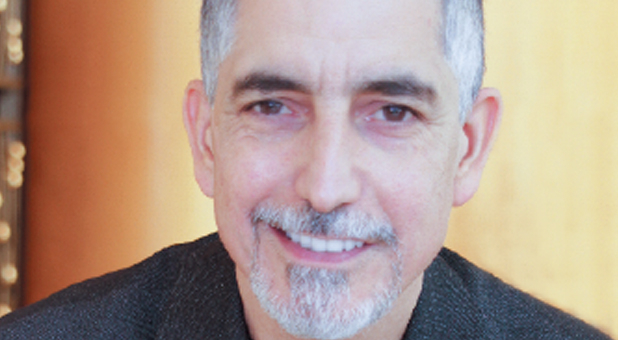Faith, Policy and Liberation Theology in the Church and State
I speak today as a person whose grandmother was noted by one newspaper as the first ordained female Hispanic minister in New York City history, whose immediate family vacillated between being, at times, economically poor to lower-middle class. My particular ministry evolved out of serving hundreds of poor, at-risk Hispanic children in the Sunset Park area of Brooklyn, and my main influence in public theology came from an urban missiologist who typically votes as a Democrat and has politically progressive views. My doctorate in biblical worldview is from Bakke Graduate University.
Our local church of 29 years has had a large percentage of predominately low-income Hispanics that we have empowered with the gospel of the kingdom to be more economically prosperous. Also, I was the first person with a Caucasian background to be a member of the Joint College of African-American Pentecostal Bishops. Also, City Action Coalition, which helped lead the fight for biblical marriage for 10 years in New York City, had approximately 50% of our board members vote for Barack Obama in 2008. Thus we are bipartisan in our politics. Morally, many would consider me a social conservative; regarding policy I probably have mixed views some may consider moderate or center-right.
In my service as a leader, I am an urban practitioner with a call to expound on matters related to public theology by applying the principles of the kingdom of God to present-day church and culture.
The local church I founded 29 years ago has always been a multi-ethnic congregation—with approximately 40-plus nationalities—and has had great success in contributing to the dramatic quality of life transformation that Sunset Park, Brooklyn, a predominantly Hispanic and Chinese community, has undergone since the mid 1980s.
Thus my theology has been informed by a concern for the poor, and with a goal to break the cycles of poverty in the lives of the hundreds of families that we minister to in both our church and in our nongovernmental organization (NGO).
That being said, my conviction is that biblically, there are five primary jurisdictions God has set up in society through His common grace which must be understood in order to understand politics and policy.
The five jurisdictions are:
1. Personal Government (see the book of Proverbs; laws of sowing and reaping)
2. Family Government (see Ephesians chapters 5 and 6)
3. Voluntary associations (including business) (see the book of Proverbs; Is. 65; 1 Kin. 4)
4. Civic Government (Politics) (see Prov. 8; Rom. 13; 1 Tim. 2)
5. Religion (the faith-based community and/or the church) (see Matt.16:16-18)
All of these jurisdictions were meant to work together in harmony, without any of them overreaching and imposing itself unlawfully on the other jurisdictions or realms.
Since the book of Genesis, when Cain fled from the presence of the Lord after killing Abel (Gen. 4); through the tower of Babel (Gen. 11); and the four major kingdoms of the earth highlighted in the book of Daniel chapters 2, 4, and 7, we have seen humankind attempt to build an autonomous human government in which the state is all-powerful and overreaching, either under a tyrant (e.g. Nebuchadnezzar) or under collective wit and power (e.g. the Tower of Babel).
It seems as though whenever power is centralized too much into one of these five jurisdictions, it brings harm to the other four. Sometimes, as in the case of a criminal, one of the jurisdictions (the first as related to personal responsibility) abdicates its right to govern to another one of the jurisdictions (as when a person is arrested and held by the state, or when parents neglect or abuse their children, or when a church or business commits fraud or exhibits racist acts), then the state has an obligation to keep the peace, promote justice and punish the guilty party.
The word of God warns us in 1 Sam. 8 about what would happen when the king and/or the state becomes too powerful. As we can see, some of the warnings are relevant today in regard to the king and/or the state bringing our children into unjust wars and taxing the people 10 percent of their income. Whenever an entity charges as much or more than God, then it is setting itself up as a messianic state that wants to be lord over all of life and control every aspect, as we see today.




























































